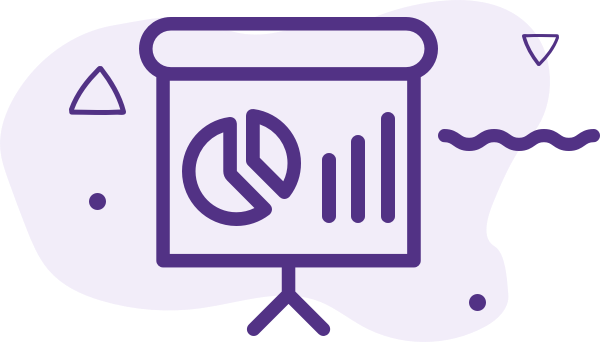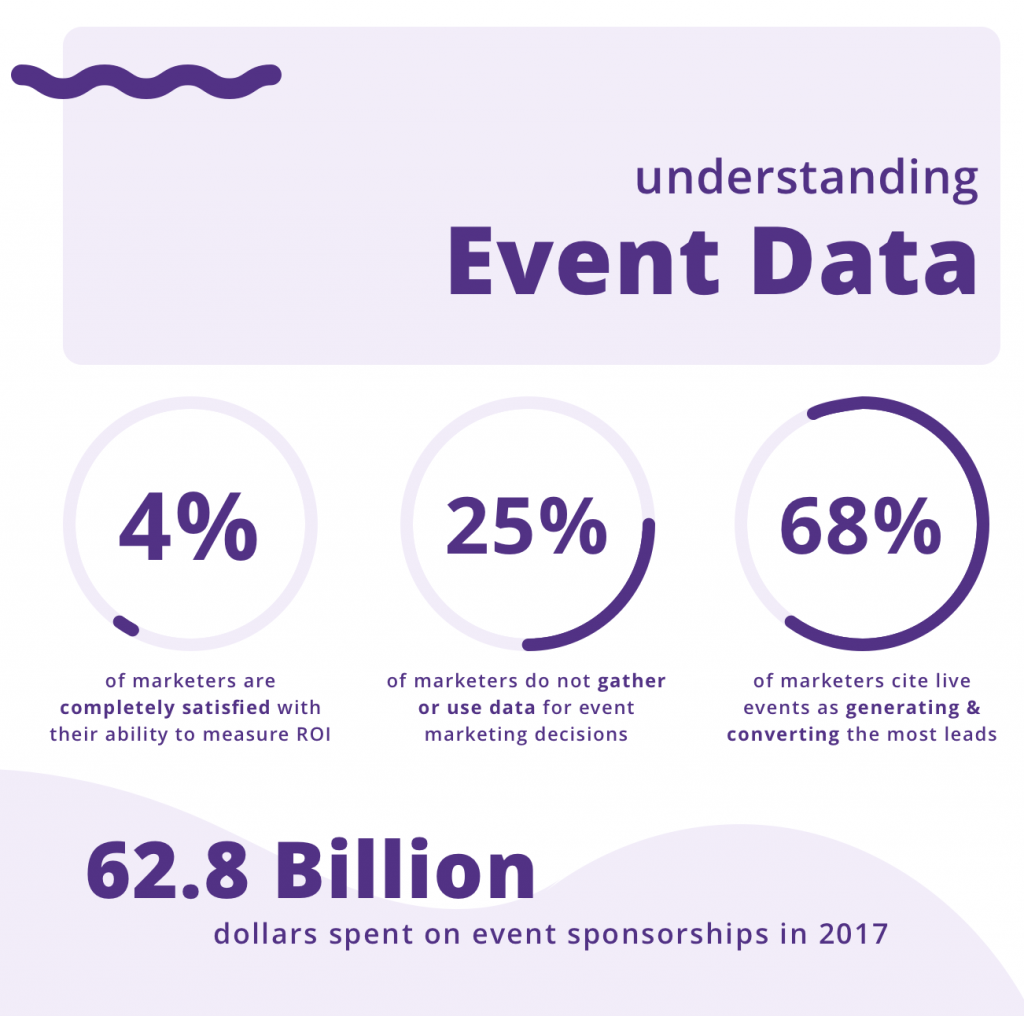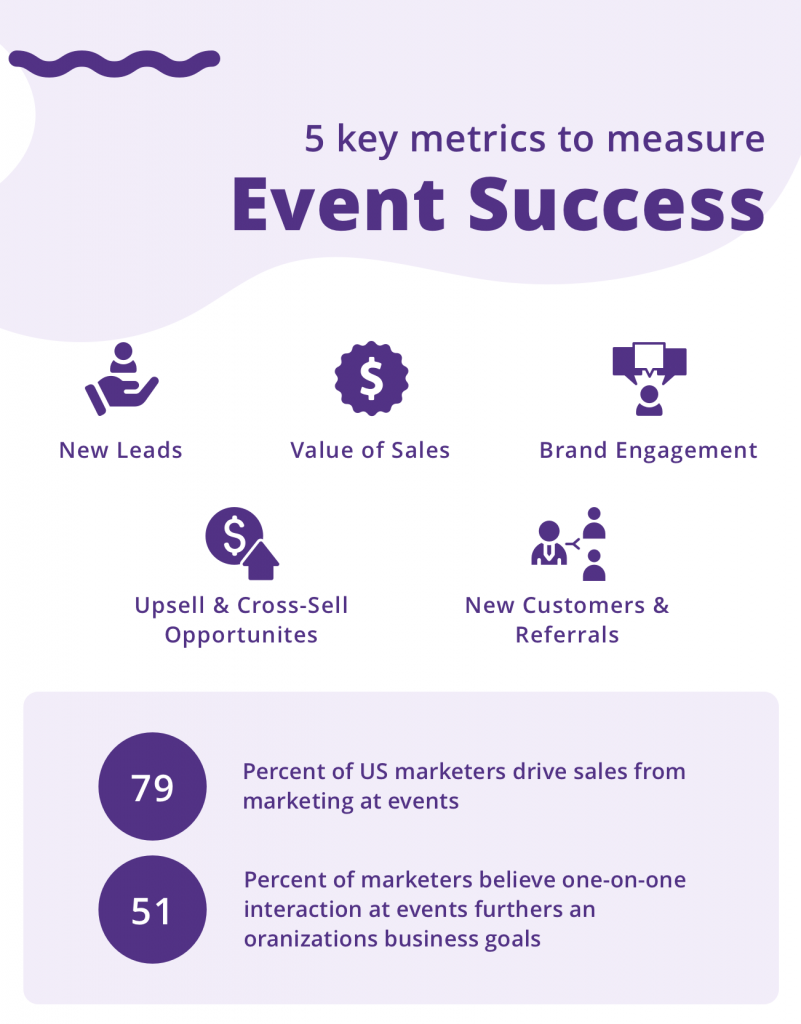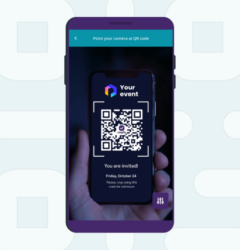19 Aug

How an Event Planning App Provides Valuable Data for Measuring ROI and Future Event Planning
How An Event Planning App Can Impact Your ROI
Any event planner knows that measuring the success of an event involves multiple metrics. This might be calculated in tickets, packages, or products sold. It could also be measured by overall attendance numbers or word-of-mouth during and after the event. While these serve as more traditional avenues for measuring event success, the rise of the event planning app has given event planners and hosts access to a wealth of new data about attendees that was never possible before. Now, event hosts can use their event planning app to go beyond just counting tickets sold or attendance numbers, and can use this data to estimate the lifetime value of every attendee to a given event.
So how does this differ from the data previously available? Because instead of only having a single snapshot of an attendee, an event planning app will allow event planners to not only track recurring attendance from an individual, but also their habits in purchasing packages, attending specific workshops or secondary events, and even collecting direct feedback from attendees for real-time evaluations of the effectiveness of different event types and planning decisions. This goes beyond the theoretical to real numbers also. Let’s take a look at some of the statistics that back up why an event planning app is a must-have for any event planner in 2019.
Lifetime Attendance Value – A Hypothetical Scenario
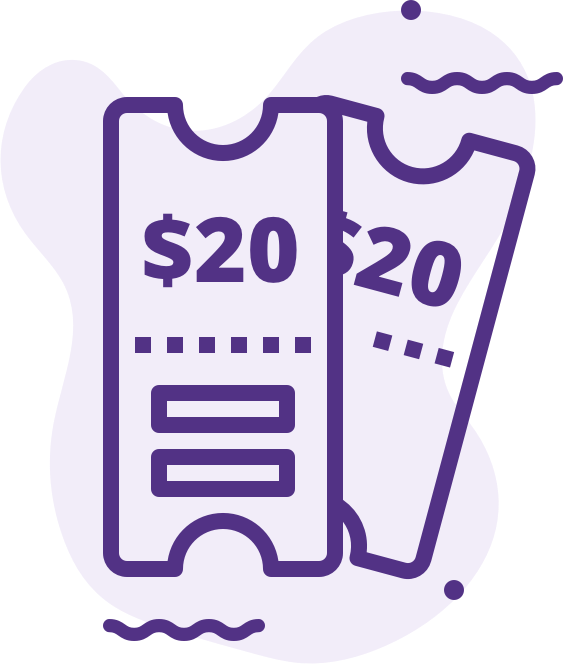
New Widget Trends and sells tickets to attendees for $20 a piece, with options for further purchases and packages. In the past, event hosts could track a single attendee by the tickets and packages they would choose, and measure ROI on that attendee against how much each individual cost as an average of the event’s overall budget. So, if a company spent $15 per attendee in event hosting fees, and the attendee spent $60 total, the host cleared a $45 profit. However, the data was limited to these hard and fast measurements, and comparing the same attendees’ habits over multiple conferences involved significant collection, organization, and analysis of data. This kind of time is largely unavailable to most people in the working world, and especially in the always-hectic event planning industry.
Fast forward to today. With an effective event planning app, a company can host the same annual event on the same platform each year, allowing for a single integrated tool for data collection, analysis, and evaluation for future event planning. The same attendee from this scenario can now be measured across four years of event attendance. This lets an event host see what this attendee always does, what changes year over year, and specifically the effectiveness of different event planning decisions that were made in a given year. Hosts can create trend lines to gauge effectiveness, and more importantly, prove with statistics what event planning choices are having the most ROI in a year, or over the course of a few years.
With the event industry generating over $325 billion in direct spending in 2018, being on the forefront of data analysis and evaluation that an event planning app can offer is critical to be a successful event planner and host. Given that every dollar spent on meetings and business events generates $1.60 downstream in the economy, businesses know the importance of leveraging events to drive customer acquisition, generate positive word-of-mouth and free marketing, and to continue to optimize event budgeting for future years.
Addressing A Need In The Event Planning Industry
There are a number of data points to support the fact that better ability to evaluate and integrate data in event planning is not only a good idea, but also a desired need of industry professionals around the world. A few of the more striking numbers (data from the Association of National Advertisers):
- Only 4% on marketers were “completely” satisfied with the ability to measure ROI on sponsorships in 2013
- Less than half of marketers have a standardized process for sponsorship/event marketing measurement
- 25% do not gather, analyze, or use data in sponsorship/event marketing decision-making
- 70% say the need to validate results from sponsorship/event marketing initiatives has increased in recent years
- Sponsorship spending was estimated to total $62.8 billion dollars in 2017 (Statista)
- 68% of B2B marketers cite live events as generating the most leads, as well as converting them (Marketing Charts 2018)
These data points alone drive home a few key truths for event planners in the modern age. First, the amount of money and value in event planning continues to grow, with billions of dollars being spent. Secondly, despite the massive amounts of money being spent by all manner of event hosts, much of the decision-making around planning and designing events is being done largely as guess-work and largely devoid of the in-depth data analysis that one would expect to be applied when thousands (in some cases millions) of dollars are at stake.
How An Effective Event Planning Platform Is the Answer
After seeing the mountain of data supporting the need for effective software tools for maximizing event data collection and analysis, the final piece of the puzzle is how modern event planning apps can fill the gap. While there is a variety of event planning software available, from basic free apps to premium and comprehensive event planning platforms, there are some general common tools that event planners can avail themselves of to maximize event budgeting. A sampling of these include:
- Online ticket sales – Not only useful in measuring revenue, but also in tracking who bought tickets annually, whether event attendees bought different packages based on advertising or marketing drives, and timelines to measure the effectiveness of messaging or promotional drives.
- Event check-in – The convenience of having attendees use QR codes to scan in to an event is obvious, but the ability to track when an attendee checks in, their habits in attending various secondary events, and even how they move throughout a conference provide valuable data for optimizing event registration and layout.
- Email/messaging functionality – While being able to contact an event guest list is possible outside of an event planning app, the ability to track engagement of email campaigns (who opened the email, which messages had more of an impact, etc) allows for effective expenditure on content creation
- Social media integration – Similar to email and messaging, the ability to track the influence of social media spending on attendee engagement, participation, and positive experience can lead to important feedback for event planners
- Data organization and export – With most apps easily allowing for data export into Excel sheets, collecting and synthesizing event data for future evaluation is never easier than when using an event planning app
A Few Closing Statistics To Further Support Event Planning App Practicality
Any event host knows that a good event, no matter what the metric of success, needs measurable and provable data to support future budgeting requests and company or organizational investment. With this in mind, some final parting data points supporting why using data for event success is critical for any event host:
- A majority of marketers cited five key metrics for measuring event value and success: Leads generated by the event, value of sales and revenue, new customer acquisition or referrals, upsell and cross-sell opportunities, and brand engagement. However, in 2013 only 34% of those measured were using these metrics to evaluate their events. (CMO Council & E2MA, 2013)
- 75% of companies with event budgets between $50-100 million say they expect an ROI of more than 5:1 for live event and experiential programs. (EMI & Mosaic, 2016)
- 79% of US marketers drive sales from marketing at events (Statista, 2014)
- 51% of marketers believe one-on-one interaction and relationship building at events furthers an organization’s business goals. (CMO Council & E2MA, 2013)
The data is unequivocal. Event planners need to incorporate effective event planning app technology to stay ahead of the curve, and keep up in a growing and competitive marketplace.
